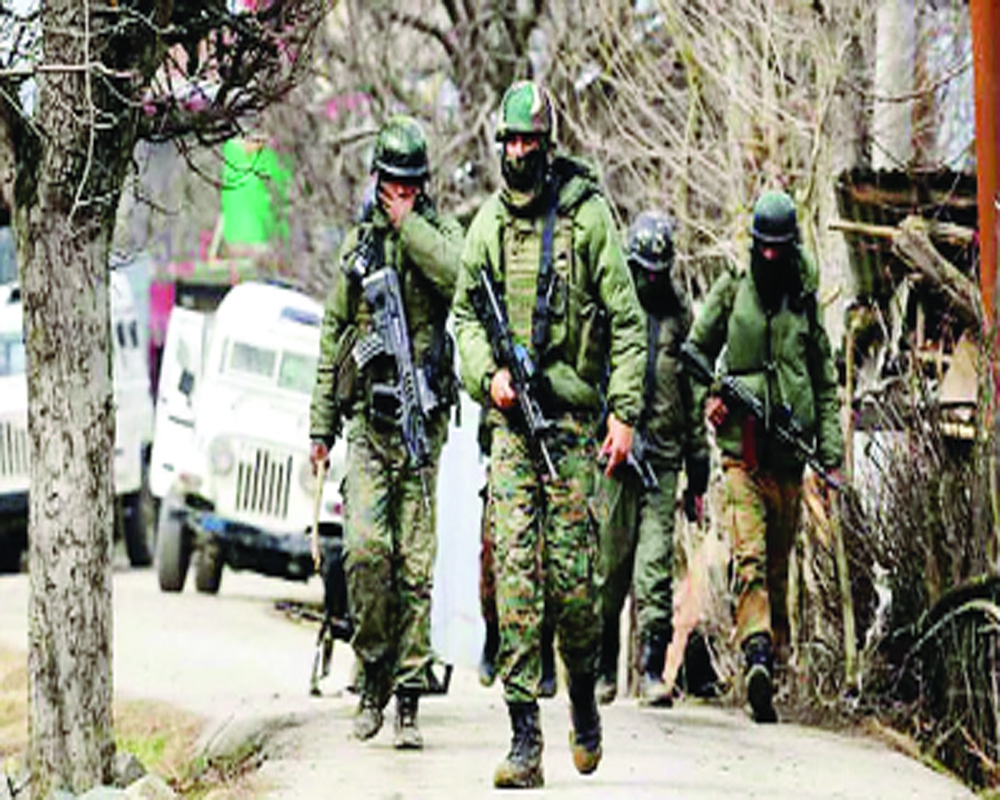Proactive leadership is crucial for implementing strategic plans, while swift judicial reforms are needed to handle terrorism cases more effectively
The recent wave of terrorist attacks in Jammu and Kashmir, following the formation of a new state government, has reignited concerns over transnational terrorism. These incidents, marked by escalating violence in vulnerable areas, highlight a disturbing evolution in militant strategies. This resurgence is rooted in multiple factors, each revealing the complexities of the situation.
Firstly, the attacks aim to signal that despite the abrogation of Article 370 and the central government’s efforts to stabilise the region, Jammu and Kashmir remain unstable. Secondly, Jammu’s expansive forested terrains have become a haven for militants, offering natural cover for guerrilla warfare and hindering security forces. Thirdly, the improved law and order in Kashmir has shifted insurgent focus to Jammu, where vulnerabilities are being exploited. Fourthly, while terrorist activities were temporarily subdued, the resurgence of militancy underscores the persistence of deep-rooted threats.
Lastly, despite the successful Assembly elections and the formation of Omar Abdullah’s government, the region continues to grapple with relentless attacks.
The situation in Jammu and Kashmir resonates with broader developments in the West Asia. Recent events, such as the targeting of an Israeli ship by Iran-backed Houthi groups in the Red Sea and subsequent retaliatory strikes by Israel, the UK and the US on Houthi positions in Yemen, have heightened regional tensions. The involvement of Hamas and Hezbollah in supporting the Houthis underscores a dangerous convergence of terrorist alliances. The killing of prominent figures like IRGC General Sayyed Razi Mousavi and Hamas Deputy Leader Saleh-al-Arouri has added to the volatility, while Houthi leader Abdul-Malik al-Houthi’s aggressive strategies have intensified attacks.
Adding to these concerns are the January 3, 2024, twin blasts in Karman, southern Iran, which left over 85 dead and hundreds injured. This violence has spread to Lebanon and Syria, where terror networks have previously used locations like Sana, Yemen, as bases for planting explosives in international airports. These incidents reveal two critical trends: the increasing potential for transnational terrorism and the extension of terror operations into global trade routes and economies.
Modern terrorist networks demonstrate an unsettling capacity for precision in choosing targets and timings.
The persistence of global terrorism is not new. Tragic events, from the Oklahoma City bombing that claimed over 200 lives to the Tokyo subway gas attack, which killed 12 and hospitalised thousands, reveal its devastating history. Other instances, such as the long-running insurgency of the Liberation Tigers of Tamil Eelam in Sri Lanka, have inflicted severe casualties and losses. Nations worldwide-be it Russia, Spain, the UK, Italy, Israel, or China-face the unrelenting specter of terrorist violence.
Social inequities, global economic disparities and historical grievances contribute to the conditions that foster extremism. The post-Cold War global order, shaped by power dynamics of major nations, has exacerbated these tensions. For instance, the power network established by the US and its allies in West Asia has sparked resistance in many regions, deepening conflicts and animosities.
In an interconnected world, socio-economic conditions in one region influence those in another, creating a fertile ground for transnational grievances. The rapid dissemination of advanced weaponry and transportation networks has further facilitated the expansion of terrorist activities. Suicide squads and other modern militant tactics have left security apparatuses reeling. It is imperative to reject narratives that romanticise terrorists as freedom fighters and foster cooperation between local communities and law enforcement to dismantle these networks.
A diversified approach, integrating technical expertise and on-the-ground insights, is essential. Specialised training programmes for security personnel to anticipate and respond to emerging threats are crucial. Countering terrorism requires a multifaceted approach, beginning with detailed analysis of major incidents to formulate actionable strategies. Advanced communication networks must be established to intercept terrorist communications effectively, while enhanced intelligence gathering, supported by strengthened local sources, is essential for generating actionable insights. Investment in cutting-edge technology for maintaining secrecy and security, along with training specialists in counter-terrorism tactics, is vital to address evolving threats. Dedicated think tanks should be created to develop innovative solutions, and comprehensive training programs for police, intelligence, and military personnel must be prioritised. Proactive leadership among security officials is crucial for implementing strategic plans, while swift judicial reforms are needed to handle terrorism cases more effectively.
These measures must be accompanied by the political will to enforce them effectively. Public awareness and grassroots support play pivotal roles in countering terrorism. Localised insights should inform security measures to ensure they are contextually appropriate and effective.
Ultimately, combating terrorism requires a coordinated global effort.
Nations must share intelligence, align strategies, and foster international cooperation to address this pervasive menace. Time is of the essence, as modern terrorists continuously adapt their tactics. Without addressing the underlying socio-political and economic factors that nurture terrorism, efforts will only provide superficial relief.
(Author, a Bharat Gaurav Award recipient, is a professor, HOD, and expert on strategic affairs; views are personal)


























